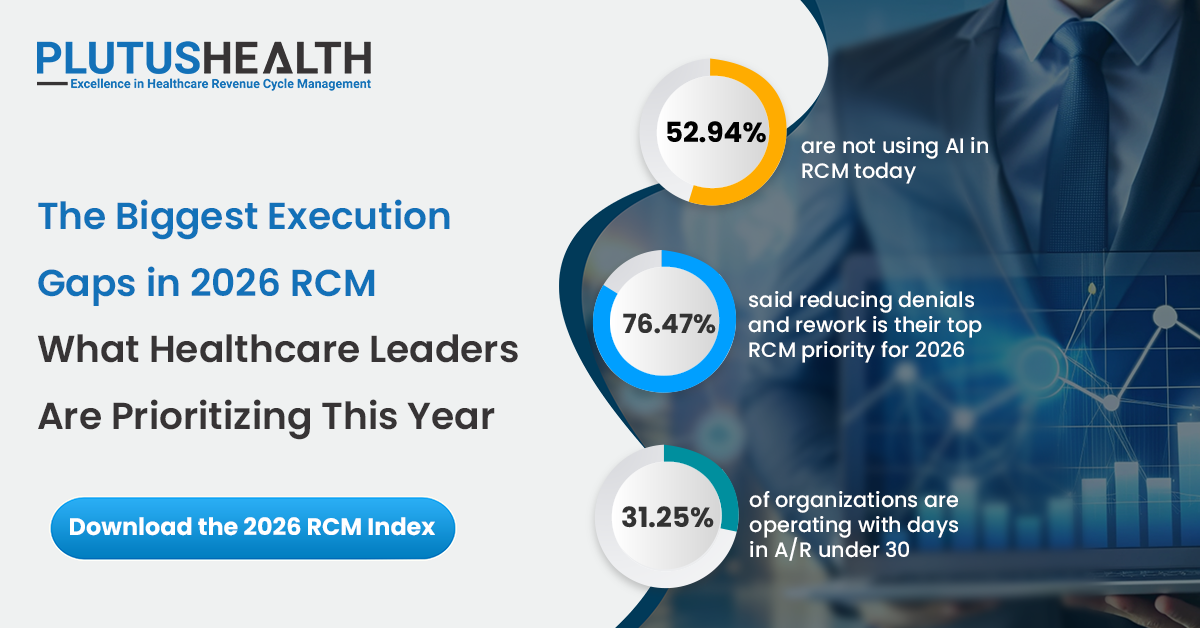Expert Tips for Meeting HCC Compliance Standards
70% of the patients have two or more chronic conditions. The increase in patients’ chronic conditions is the primary reason for the increase in HCC coding and value-based care. HCC (Hierarchical Condition Coding) is a part of CMS’s risk adjustment process. It helps payers with predictive planning of care costs for patients with chronic or acute conditions.
Meeting HCC compliance standards is very important for payers as it determines their relationship with the patients and providers. Compliance also directly connects with a health plan’s growth and revenue. This blog will provide expert tips for meeting HCC compliance standards.
In this blog:
- What problems does HCC coding solve?
- Benefits of audits and retrospective reviews
- Tips to meet HCC compliance standards
- How Plutus Health can help
HCC Coding
HCC coding is vital to ensure the effective management of patient care. It provides an entire picture of the patient’s health. AAPC services conducted a risk adjustment audit with healthcare providers and found that 20% of claims had coding errors while 12% of them had ICD-10-CM dx code errors. There were insufficient documents to support the chronic conditions. 8% of the diagnoses were not captured but supported and were identified as missed opportunities.
Improper use of Dx (diagnosis) codes results in inappropriate reimbursement for the care member required. Certified HCC coders use appropriate ICD codes to reduce health plan costs, improve patient care, and ensure accurate provider compensation.
Benefits of audits and retrospective reviews
Retrospective chart reviews aid completeness and compliance. Insurance payers and healthcare providers are already dealing with staff shortages, high costs, and financial challenges. These challenges with HCC coding can impact payers and providers.
To help payers and providers, The Department of Health and Human Services again focused on Risk Adjustment and Data Validation (RADV) audits. A retrospective review is now a significant target to streamline the process. CMS has also increased its focus on the population with several acute or chronic conditions.
You can improve HCC coding with retrospective reviews and audits. These audits include educating payers and providers on improving revenue, capturing accurate codes, removing coding errors, and eliminating fraud.
Tips to meet HCC compliance standards
"Successful insurance payer conducts 2-3 audits on 66.66% of their medical advantage members and ask at least two coders to overread the claim."
- Verlon Pabon, Risk Adjustment Expert, Plutus Health.
Focus on the correct population
Health plans must understand their partners and segregate the healthcare providers according to priority. With the increase in providers, the number of chart reviews will rise. It is vital to complete all the chart reviews for the health plan to achieve compliance. If the health plan focus on the correct population, it would increase the accuracy and avoid complications. Health plans should prioritize chart reviews of the members with a high risk of audits.
Educate provider and improve relationship
The introduction to value-based care has increased the interaction between payers and providers. Health plans sometimes send their staff to evaluate the risk without the providers' knowledge. But now, payers and providers share equal responsibility for value-based care. Insurance payers must work together and build a strong relationship to work seamlessly on Risk Adjustment Factor (RAF) scores.
Healthcare providers might lack appropriate risk-adjustment knowledge and commit mistakes. Ensure all the providers in your circle get educated to avoid compliance issues. But educating healthcare providers is not easy; you need an established team to coordinate with the providers seamlessly and offer them the right education when needed the most. Providing education is a win-win opportunity for payers and providers. Payers get to stay compliant, and providers can optimize their reimbursement for value-based payments.
Leverage cutting-edge technology
All the leading healthcare plans realize the importance of cutting-edge technology and leverage Natural Processing Language (NPL) to improve their coding process. These technologies help health plans to scan all the records and detect claims with errors or suspicion. Whether you process the claims internally or outsource to HCC-coding service providers like Plutus Health, insurance payers must leverage cutting-edge technology to stay compliant and increase revenue.
Segment charts and utilize analytics
Insurance payers can use analytics to support healthcare providers based on their requests. Prioritize and segment charts based on provider type. You should also do a trend analysis of previous chart audits and segment providers based on coding problems detected. Use all the internal logic and rules to analyze and optimize the review queue.
Use claim data to avoid coding errors
Data is the key to successfully growing as a health plan. But this data is unshattered, and bringing it together and making meaningful use of it will be key. Insurance plans can generate appropriate reimbursements by reviewing previous claims. To generate reports, you can compare the new chart review outcome with the previous year's outcome. Comparison helps to delete the already submitted Dx codes that do not match the claims. You can also use claim data to code and avoid errors appropriately.
Outsource to industry experts
Quality HCC coding and reviews are important for health plans to stay financially stable. Insurance payers do not have sufficient resources or the experience needed to improve HCC documentation and coding. Health plans must also have the right subject knowledge and technology to get the desired growth. Health plans fail to build relationships with providers due to these resource crunches. Partnering with risk adjustment HCC solution providers like Plutus Health will aid you in streamlining your HCC coding and getting the desired assistance in strategy planning, documentation, and much more without burdening your staff.
How can Plutus Health help?
Plutus Health is a leading HCC risk adjustment coding provider that leverages modern technology like AI, ML, and DL to help health plans with commercial Medicaid, Medicare, and ACA Advantages. We create accurate documents of health conditions, member demographics, and health status using AI tools to deliver 99.99% accuracy. Our certified (AAPC, CRC) HCC coders help you calculate per-member cost and provide proper compensation. Plutus Health's HCC coding includes prospective, concurrent, and retrospective reviews for member encounters.
We have a team of 1000+ HCC coding specialists with a coding accuracy rate of >98%. We help health plans save 60% average savings on each chart review.
Do you need assistance with HCC coding services? Connect with leading providers of risk adjustment HCC coding services for Medicare Advantage plans.




















































